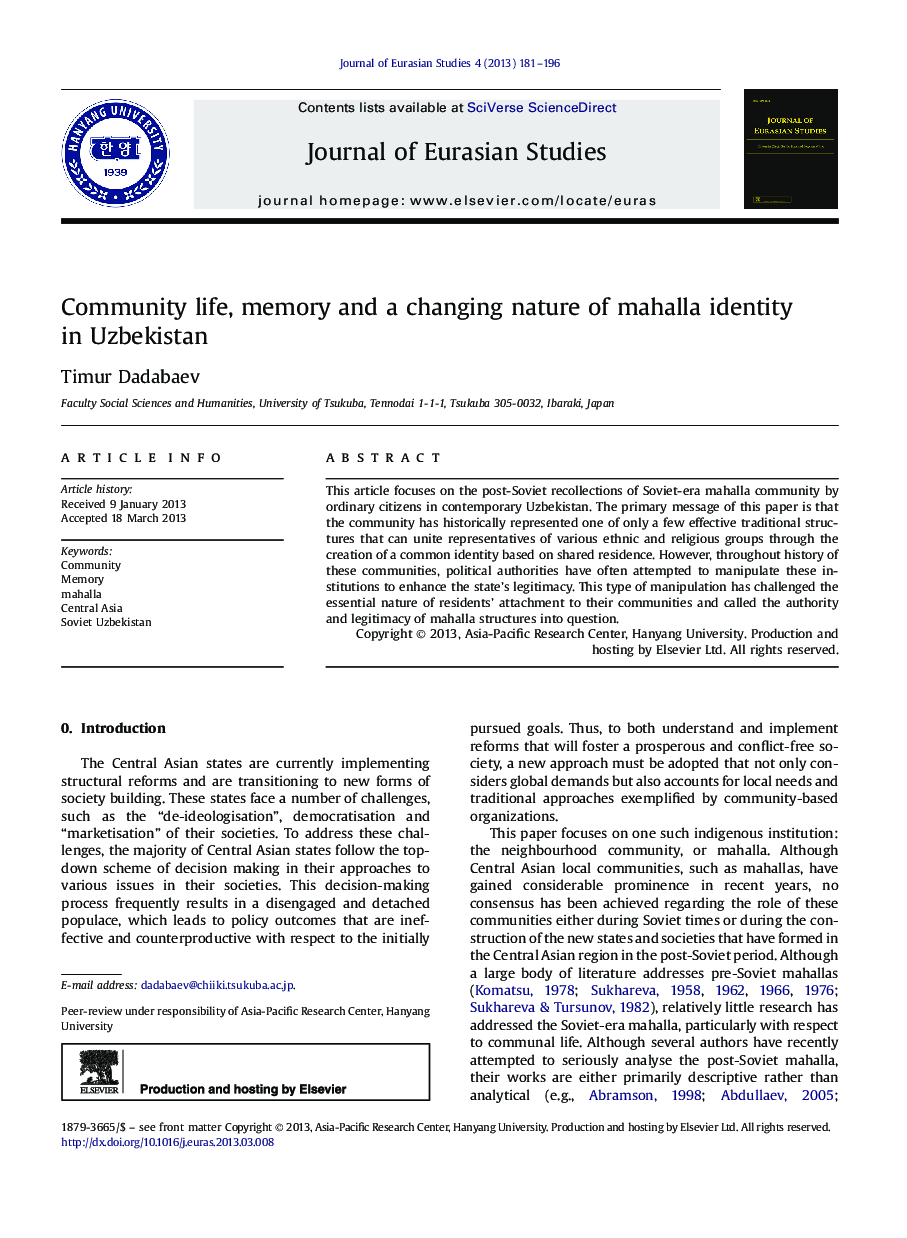| Article ID | Journal | Published Year | Pages | File Type |
|---|---|---|---|---|
| 1127263 | Journal of Eurasian Studies | 2013 | 16 Pages |
This article focuses on the post-Soviet recollections of Soviet-era mahalla community by ordinary citizens in contemporary Uzbekistan. The primary message of this paper is that the community has historically represented one of only a few effective traditional structures that can unite representatives of various ethnic and religious groups through the creation of a common identity based on shared residence. However, throughout history of these communities, political authorities have often attempted to manipulate these institutions to enhance the state's legitimacy. This type of manipulation has challenged the essential nature of residents' attachment to their communities and called the authority and legitimacy of mahalla structures into question.
